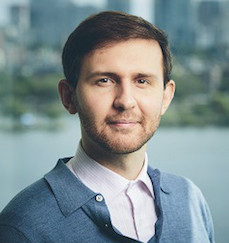嘉宾介绍

Nick Gravin
Nikolai Gravin先后博士毕业于俄罗斯斯捷克洛夫数学研究所和新加坡南洋理工大学,共获得两个博士学位,是麻省理工学院计算机科学与人工智能实验室博士后,我校信息管理与工程学院理论计算机科学研究中心常任轨教师。在其求学经历中获得过微软亚洲研究院博士奖学金、新加坡博士奖学金、青年数学家欧拉基础奖学金等奖励或荣誉。2003年国际数学奥林匹克金牌获得者。
Nikolai Gravin的研究工作主要是计算经济学方向,包括机制设计,均衡计算,博弈系统分析等。计算经济学是利用越来越强大的计算能力和越来越容易获得的海量信息提高现有经济体制和机制,设计算法以适应大规模信息化的互联网市场和商业平台现状。Nikolai Gravin有多篇论文在理论计算机及计算经济学的顶级会议与期刊发表,包括STOC 4篇, FOCS 2篇, SODA 3篇, EC 3篇等,是该领域国际上最活跃的少数几个科学家之一,解决了很多常年未解决的open problem。
特邀报告
报告题目:Testing Markov Chains
报告摘要:A commonly used technique in casinos to shuffle decks of 52 cards is the riffle shuffle: first, the dealer cuts the deck into two piles, then the shuffler successively drops cards from the bottom of each pile to form a new pile. The classic model proposed in 1955 by Gilbert, Shannon, and Reeds describes the randomness in the riffle shuffle process. But how do we verify that a specific dealer shuffles according to the model? How many trials are needed to test that dealer's shuffles conform to GSR-model? These questions can be formulated as ``identity testing problem'' in the classic distribution testing framework. Standard distribution testing assumes access to i.i.d. samples from the distributions that are being tested, whereas in our problem samples are coming in a stream of dependent samples generated by a Markov chain. I will introduce a theoretical framework to study Markov Chain testing and present our theoretical results for the identity testing problem, where we get to observe a single trajectory of k samples from an unknown Markov Chain P and our goal is to test whether P is identical to a given model Markov Chain Q.